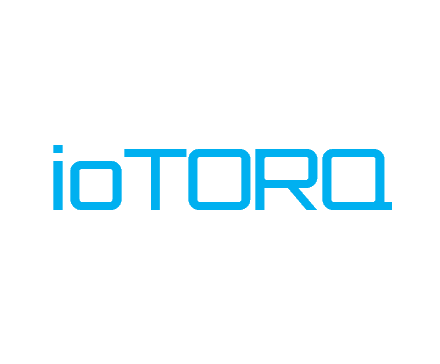Description

Kiran ERP for Manufacturing

Prodsmart
Comprehensive Overview: Kiran ERP for Manufacturing vs Prodsmart
Overview of Kiran ERP for Manufacturing and Prodsmart
a) Primary Functions and Target Markets
Kiran ERP for Manufacturing
-
Primary Functions:
- Kiran ERP is designed to provide comprehensive enterprise resource planning solutions tailored for manufacturing businesses. Some of its primary functions include inventory management, production planning, quality control, supply chain management, and financial accounting. It often includes modules for managing human resources, procurement, and customer relationship management (CRM) as well.
- The system focuses on streamlining operations, improving process efficiency, and offering real-time data analytics for better decision-making.
-
Target Markets:
- Kiran ERP primarily targets small to mid-sized manufacturing companies. Its scalability allows it to cater to various manufacturing industries such as automotive, electronics, consumer goods, and more. The software is typically ideal for companies looking for cost-effective ERP solutions that can adapt to their growing business needs.
Prodsmart
-
Primary Functions:
- Prodsmart is a manufacturing execution system (MES) offering capabilities such as production tracking, workflow management, quality assurance, and data collection. It is a cloud-based solution that provides real-time insights into manufacturing operations, helping companies optimize production processes and reduce waste.
- It focuses on ensuring that shop floor activities are efficiently managed and aligned with overall production targets.
-
Target Markets:
- Prodsmart targets small to medium-sized manufacturers, often in discrete manufacturing industries. It appeals to businesses that need a straightforward and flexible MES without the complexity of traditional ERP systems. Industries such as textiles, plastics, and smaller custom manufacturing operations fit well with Prodsmart’s offerings.
b) Comparison in Terms of Market Share and User Base
-
Kiran ERP for Manufacturing:
- Market Share: As part of the crowded ERP market, Kiran ERP competes with both large providers and niche players. It focuses on small to medium enterprises, where it holds a modest market share within this segment.
- User Base: The user base consists of several hundred to a few thousand small to mid-sized manufacturers, depending on its regional reach and industry penetration.
-
Prodsmart:
- Market Share: Prodsmart has grown as an MES leader by focusing on agile and efficient manufacturing solutions. Its market share has been expanding, especially among firms seeking cloud-based, real-time manufacturing insights.
- User Base: As a dedicated MES, Prodsmart has attracted a broad user base in its niche, evidenced by its presence in numerous small to medium-sized manufacturing facilities globally.
c) Key Differentiating Factors Between These Products
-
Scope of Functionality:
- Kiran ERP offers a comprehensive suite of ERP functionalities across various business operations, covering financials to HR, in addition to manufacturing-specific features.
- Prodsmart focuses specifically on manufacturing execution and shop floor management, making it ideal for real-time production tracking and operational efficiency.
-
Implementation and Usability:
- Kiran ERP typically requires a more extensive implementation process due to its broad functionality and integration requirements across departments.
- Prodsmart, being a cloud-based MES, is often quicker to implement, offering easier setup and user-friendly interfaces for handling day-to-day production tasks.
-
Flexibility and Customization:
- Kiran ERP usually offers more extensive customization options to fit various manufacturing specifics, albeit with increased complexity.
- Prodsmart focuses on providing flexibility in production environments without the complexity of larger ERP systems, favoring adaptability and intuitive use.
-
Target Audience and Cost:
- Kiran ERP may involve higher upfront investment and is suitable for companies looking for enterprise-level solutions across all business functions.
- Prodsmart is generally more cost-effective, targeted at businesses that need specialized manufacturing execution support with lower initial and ongoing costs.
These systems cater to different needs within the manufacturing sector, with Kiran ERP offering a full-scale business suite and Prodsmart focusing on optimizing manufacturing operations through MES capabilities.
Contact Info

Year founded :
Not Available
Not Available
Not Available
Not Available
Not Available

Year founded :
2012
+1 415-991-6295
Not Available
Portugal
http://www.linkedin.com/company/prodsmart
Feature Similarity Breakdown: Kiran ERP for Manufacturing, Prodsmart
Comparing Kiran ERP for Manufacturing and Prodsmart can help businesses determine which solution aligns best with their needs. Here's a breakdown based on the kind of features typically available in these types of software:
a) Core Features in Common:
-
Production Management: Both Kiran ERP and Prodsmart offer robust tools for overseeing production processes, including work order management and production scheduling.
-
Inventory Management: Both systems provide inventory tracking capabilities to manage raw materials and finished goods.
-
Quality Management: They generally feature quality control processes to ensure that products meet specified standards.
-
Reporting and Analytics: Both platforms usually offer reporting tools to provide insights into production data and operational efficiency.
-
Integration Capabilities: Both ERP systems typically support integration with other business software and machines on the shop floor for streamlined operations.
b) User Interface Comparison:
-
Kiran ERP for Manufacturing: The user interface of Kiran ERP is generally designed to be user-friendly, emphasizing ease of navigation with a focus on dashboards that provide real-time updates.
-
Prodsmart: Prodsmart’s user interface often leans towards simplicity and accessibility, with mobile-friendly applications that cater to on-the-go monitoring and input by operators in the manufacturing environment.
The design philosophy of each product's interface might differ, with Kiran possibly focusing on detailed dashboards suitable for desktop use, while Prodsmart might excel in mobile usability with intuitive touch-focused interfaces.
c) Unique Features:
-
Kiran ERP for Manufacturing:
- Customizability: Kiran ERP might offer extensive customization options to tailor the system to specific manufacturing processes.
- Comprehensive Module Suite: It often includes a broader suite of modules covering various business functions beyond manufacturing, such as finance and human resources.
-
Prodsmart:
- Mobile-First Approach: A significant focus on mobile usability can be expected, with apps designed to facilitate easy data entry and review from the shop floor.
- Real-time Shop Floor Control: Prodsmart typically emphasizes real-time monitoring and control, providing detailed visibility into each stage of the manufacturing process, suitable for environments where rapid response is critical.
In summary, while both Kiran ERP for Manufacturing and Prodsmart share several core features essential for manufacturing ERP systems, their differences in interface design and unique features might make one more suitable than the other depending on specific business needs, such as mobility and the scope of ERP functionality required.
Features

Not Available

Not Available
Best Fit Use Cases: Kiran ERP for Manufacturing, Prodsmart
Kiran ERP for Manufacturing and Prodsmart are both designed to streamline manufacturing processes, but they cater to slightly different needs and business types. Here's how each stacks up in terms of suitability for various use cases:
Kiran ERP for Manufacturing
a) Best Fit Businesses or Projects:
- Medium to Large Manufacturing Enterprises: Kiran ERP is ideally suited for medium to large manufacturing businesses that require a robust, all-encompassing solution. These are companies that need extensive process management capabilities, including inventory management, production planning, quality control, and financial management.
- Complex Manufacturing Processes: It is particularly beneficial for businesses with complex manufacturing processes that need detailed tracking and analysis of operations to improve efficiency and reduce waste.
- Businesses with Custom Requirements: Companies that require a high level of customization for their ERP system to match industry-specific workflows can benefit from Kiran ERP’s wide range of configurable modules.
b) Company Size and Industry Vertical:
- Automotive, Aerospace, and Heavy Machinery: Industries that involve intricate supply chains and extensive regulatory compliance can leverage the comprehensive feature set of Kiran ERP.
- Mid-sized Enterprises: While capable of supporting large enterprises, it is also viable for mid-sized businesses looking to scale operations.
Prodsmart
b) Preferred Scenarios:
- Small to Medium-sized Manufacturing Businesses: Prodsmart is designed for smaller manufacturing operations that need an agile, user-friendly solution to manage and streamline production without the complexity and cost of a full-scale ERP system.
- Paperless Manufacturing: Ideal for companies looking to transition to a digital manufacturing environment with real-time data capture on the shop floor. This helps reduce paperwork and improve data accuracy.
- Job Shops and Short-run Manufacturers: Businesses involved in custom, small-batch production runs benefit from Prodsmart’s focus on flexibility and responsiveness.
d) Company Size and Industry Vertical:
- Textile, Assembly, and Food Production: Its simplicity and flexibility make it suitable for industries where quick adjustments are needed, and process visibility is crucial.
- Small and Medium Enterprises (SMEs): Particularly those looking for cost-effective solutions that can be implemented rapidly and with minimal disruption to existing operations.
Catering to Different Verticals and Sizes
-
Kiran ERP caters more to complex, larger organizations or those involved in heavy industries where comprehensive process integration and detailed analytics are critical for success. It provides in-depth functionality that suits industries with stringent compliance standards and intricate operational processes.
-
Prodsmart, on the other hand, excels in providing leaner and more adaptable solutions for smaller businesses or specific sectors that might not require the extensive suite of options provided by a full-scale ERP. It focuses on ease of use, speed of implementation, and real-time operational insights, making it a better option for companies prioritizing simplicity and agility.
In summary, the choice between Kiran ERP and Prodsmart largely depends on the scale of operations, the complexity of the manufacturing process, and the specific industry needs. Kiran ERP is best for larger, more complex operations, whereas Prodsmart is ideal for smaller, dynamic environments looking to digitize and optimize their manufacturing processes.
Pricing

Pricing Not Available

Pricing Not Available
Metrics History
Metrics History
Comparing undefined across companies
Conclusion & Final Verdict: Kiran ERP for Manufacturing vs Prodsmart
When comparing Kiran ERP for Manufacturing and Prodsmart, it's important to assess each product based on various criteria including functionality, ease of use, scalability, customer support, pricing, and integration capabilities. By weighing these factors, users can determine which solution aligns best with their manufacturing needs.
Conclusion and Final Verdict
a) Best Overall Value
The best overall value will depend on the specific needs and size of the manufacturing operation. Generally, Prodsmart tends to offer superior value for small to medium-sized manufacturers due to its focus on real-time production tracking, user-friendly interface, and seamless integration with existing systems. However, Kiran ERP for Manufacturing may be more advantageous for larger enterprises that require extensive functionality and customizability within their ERP system.
b) Pros and Cons
Kiran ERP for Manufacturing
- Pros:
- Comprehensive ERP solution covering a wide range of manufacturing processes.
- Highly customizable to fit specific business needs.
- Strong support for complex operations and scalability.
- Cons:
- Implementation can be complex and time-consuming.
- May require more training and a higher learning curve.
- Potentially higher cost for full suite features, which may not be economical for smaller companies.
Prodsmart
- Pros:
- Simple and intuitive interface, great for easy onboarding.
- Focuses on real-time data tracking, enhancing decision-making with up-to-date information.
- Quick implementation and lower initial setup costs.
- Strong integration capabilities with various third-party services.
- Cons:
- May not have as many advanced features as a full-fledged ERP like Kiran ERP.
- Limited scalability for very large enterprises with complex needs.
- Might require additional tools to cover functionalities beyond production monitoring.
c) Recommendations
-
Evaluate Business Size and Needs:
- Small to medium manufacturers often benefit most from Prodsmart's affordable and straightforward solution, particularly if real-time production tracking is a priority.
- Larger or more complex manufacturing operations might find the comprehensive features of Kiran ERP more beneficial, despite the longer implementation timeline.
-
Consider Long-term Scalability:
- Businesses anticipating rapid growth may prefer Kiran ERP for its scalability and robust reporting capabilities.
- Prodsmart is ideal for those looking for immediacy and efficiency in production management without the need for large-scale ERP complexity.
-
Assess Integration Requirements:
- Ensure that the chosen system integrates smoothly with existing tools and processes. Prodsmart generally offers strong integration options, which is advantageous if seamless connectivity is crucial.
-
Budget and Cost Considerations:
- Balancing initial investment against long-term benefits is key. Prodsmart offers a cost-effective upfront option whereas Kiran ERP might present more cost as functions expand.
Each of these products has its strengths and is best suited to different contexts. Users should carefully consider their specific operational needs, resources, and future growth plans when choosing between Kiran ERP for Manufacturing and Prodsmart.
Add to compare
Add similar companies




